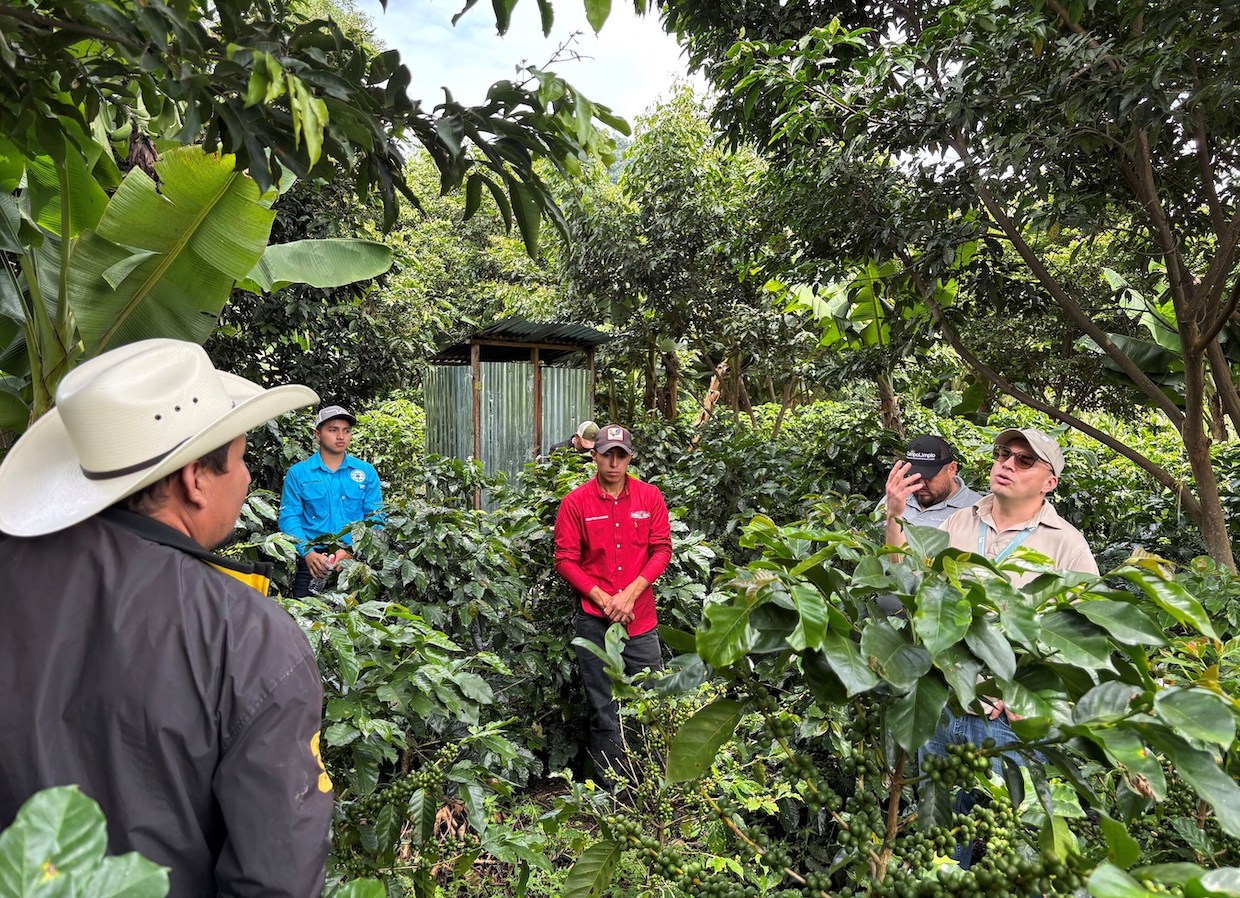
"Numerous global coffee roasting companies are banding together for a four-year project designed to help smallholder coffee families in western Honduras cope with climate change, protect forests and maintain quality coffee production. U.S.-based J.M. Smucker Co., Austria-based Julius Meinl and Germany-based Tchibo announced the project, called Climate-Smart Coffee Region (CSCR Honduras), in collaboration with the nonprofit Hanns R. Neumann Stiftung (HRNS)."
""Western Honduras is ecologically rich but also increasingly vulnerable to climate change," said HRNS Program Manager Theresa Ruperti, noting recent prolonged droughts, rising temperatures and reduced yields. "By linking coffee productivity, community resilience and ecosystem conservation, the CSCR Honduras project supports farmers' livelihoods and positions Western Honduras as a model for climate-smart and biodiversity-positive coffee farming in Central America." The work will focus on communities in and around protected areas such as Celaque, Erapuca, Las Minas and Volcán Pacayita."
"While there is no universal definition of "climate-smart" coffee, the companies said the initiative will employ proven climate adaptation tools, including soil and water conservation, agroforestry practices, erosion control, microclimate monitoring and household innovations such as fuel-efficient stoves and water-saving devices. HRNS Honduras will implement the program on the ground."
A four-year Climate-Smart Coffee Region (CSCR Honduras) initiative will support about 4,000 smallholder coffee farmers and roughly 20 producer organizations across approximately 6,000 hectares in western Honduras (Ocotepeque, Copán and Lempira). U.S.-based J.M. Smucker Co., Austria-based Julius Meinl and Germany-based Tchibo, collaborating with Hanns R. Neumann Stiftung (HRNS), will deploy climate adaptation measures. HRNS Honduras will implement activities on the ground. Interventions will include soil and water conservation, agroforestry, erosion control, microclimate monitoring and household innovations. Efforts will target buffer zones around protected areas to integrate productivity, ecosystem conservation and community resilience, and the project is open to additional partners.
Read at Daily Coffee News by Roast Magazine
Unable to calculate read time
Collection
[
|
...
]